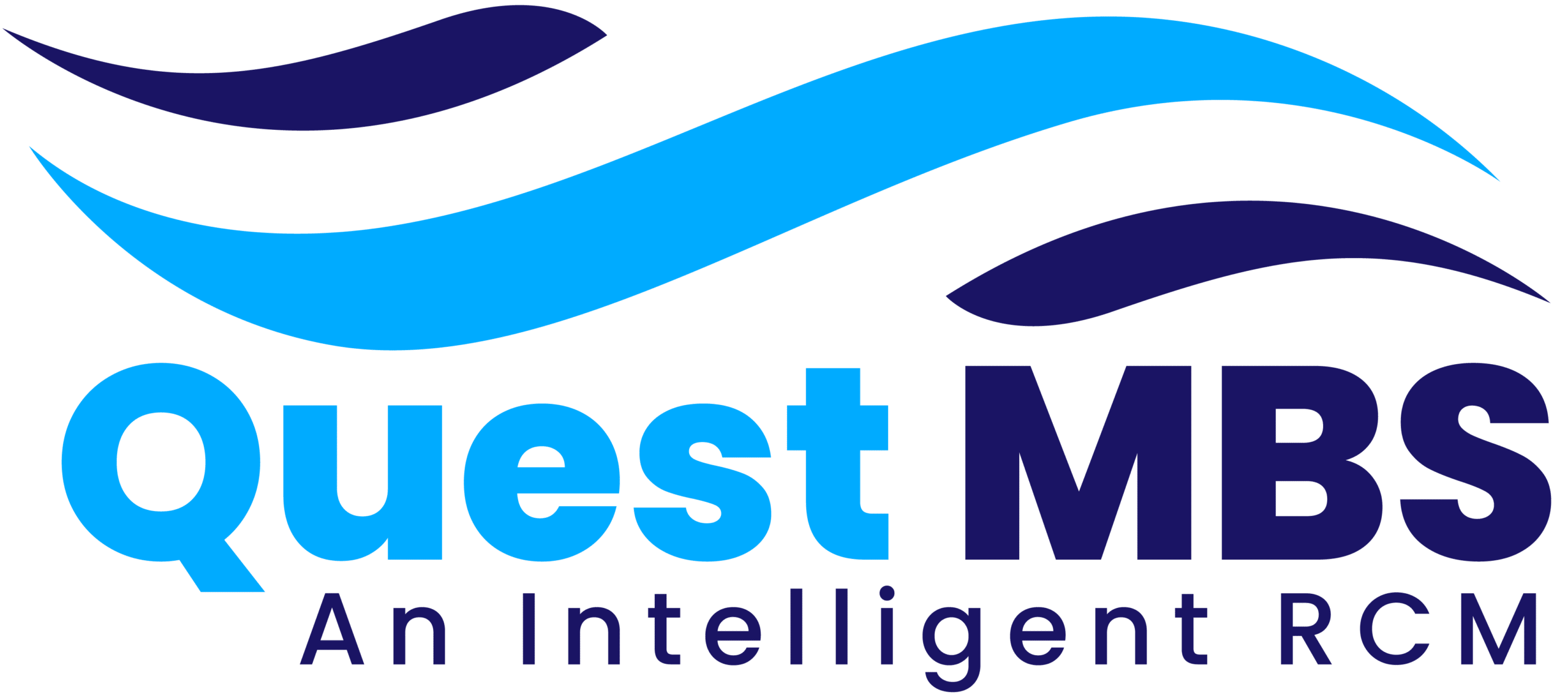F32.9 Diagnosis Code: Exploring Major Depressive Disorder

As healthcare providers and professionals in the medical billing industry are well aware, accurate coding is the bedrock of effective patient care and streamlined financial processes. The F32.9 diagnosis code, a subset of the ICD-10 coding system, plays a pivotal role in documenting and classifying depressive disorders, offering healthcare providers and medical billing experts a standardized language to communicate and record vital patient information.
In this blog, we will explore the F32.9 diagnosis code, providing a thorough understanding of its significance, applications, and implications in the broader context of healthcare.
What is F32.9 Diagnosis Code?
The F32.9 diagnosis code, situated within the International Classification of Diseases (ICD), holds a distinctive position as the identifier for a specific subset of depressive disorders. Specifically, it comes into play when the documentation lacks specificity about the particular subtype of depression afflicting the patient. F32.9 acts as a catch-all code, ensuring that even when the details are not explicitly outlined, the depressive disorder is still properly classified within the standardized coding system.
In the expansive landscape of medical coding, the ICD serves as the lingua franca, fostering effective communication across healthcare entities. The F32.9 code is integral to this system, acting as a conduit between the nuanced clinical intricacies of a patient’s depressive state and the imperative for a standardized classification mechanism. Its role becomes especially crucial in facilitating seamless communication between healthcare providers, insurance entities, and medical billing professionals.
Through the use of F32.9, healthcare providers can efficiently communicate essential information about a patient’s condition, contributing to more informed decision-making and a cohesive healthcare ecosystem.
F32.9 ICD 10 Code
The F32.9 ICD 10 code specifically falls under the broader umbrella of depressive disorders within the International Classification of Diseases, 10th Edition (ICD-10). This alphanumeric code serves as a meticulous descriptor for cases where the depressive disorder is not further specified.
In essence, when healthcare providers encounter a situation where the nuances of a patient’s depressive state lack explicit details regarding subtypes or classifications, the F32.9 ICD 10 code becomes the go-to identifier. As part of the ICD-10 system, F32.9 plays a vital role in standardizing the language used in healthcare documentation. This standardized approach ensures that irrespective of the healthcare setting or professional involved, there is consistency in recording and communicating information related to depressive disorders.
Understanding the nuances of the F32.9 ICD 10 code is essential for healthcare providers and medical billing experts alike, as it forms a cornerstone in accurately capturing and conveying crucial details about a patient’s mental health status within the intricacies of medical coding protocols.
Major Depressive Disorder and Diagnosis Codes
Major Depressive Disorder (MDD) stands as a prevalent mental health condition, and its accurate documentation is paramount for effective patient care and seamless medical billing processes. Diagnosis codes play a pivotal role in this regard, offering a standardized system to classify and communicate information about MDD.
Specificity in Coding: Understanding the nuances of diagnosis codes, such as F32.9 in the context of Major Depressive Disorder, is crucial. Specificity ensures accurate communication of the severity and nature of the condition, aiding in tailored treatment plans.
ICD-10 Coding System: MDD diagnosis codes, including F32.9, find their place within the International Classification of Diseases, 10th Edition (ICD-10). This standardized system facilitates consistent communication and documentation across the healthcare spectrum.
Clinical and Financial Impact: Accurate diagnosis codes not only contribute to optimal patient care by aiding in precise treatment but also play a pivotal role in the financial aspects of healthcare, influencing reimbursement processes and insurance claims.
Coding Guidelines: Adhering to coding guidelines is imperative. Familiarity with the conventions and rules surrounding the use of diagnosis codes ensures compliance and minimizes errors in medical documentation.
Here is a list of diagnosis codes related to Major Depressive Disorder (MDD) within the International Classification of Diseases, 10th Edition (ICD-10). Each code corresponds to different subtypes and specificities of MDD, allowing for a more nuanced and accurate representation of the condition:
F32.0 – Major depressive disorder, single episode, mild
F32.1 – Major depressive disorder, single episode, moderate
F32.2 – Major depressive disorder, single episode, severe without psychotic features
F32.3 – Major depressive disorder, single episode, severe with psychotic features
F32.4 – Major depressive disorder, single episode, in partial remission
F32.5 – Major depressive disorder, single episode, in full remission
F32.8 – Other specified major depressive disorder
F32.9 – Major depressive disorder, single episode, unspecified
F33.0 – Major depressive disorder, recurrent, mild
F33.1 – Major depressive disorder, recurrent, moderate
F33.2 – Major depressive disorder, recurrent, severe without psychotic features
F33.3 – Major depressive disorder, recurrent, severe with psychotic features
F33.40 – Major depressive disorder, recurrent, in remission, unspecified
F33.41 – Major depressive disorder, recurrent, in partial remission
F33.9 – Major depressive disorder, recurrent, unspecified
Stressed by medical billing? Call us now, and let our specialists create a customized billing strategy for your practice.
CPT Code for Major Depressive Disorder
For Major Depressive Disorder (MDD), there are specific CPT codes that align with the various therapeutic interventions and assessments associated with the condition. These codes ensure that healthcare providers and billing professionals can effectively communicate the nature of the services rendered, facilitating streamlined reimbursement processes and accurate financial tracking.
List of CPT Codes for Major Depressive Disorder:
90832 – Psychotherapy, 30 minutes with patient and/or family member
90834 – Psychotherapy, 45 minutes with patient and/or family member
90837 – Psychotherapy, 60 minutes with patient and/or family member
90839 – Psychotherapy for crisis, first 60 minutes
90840 – Psychotherapy for the crisis, each additional 30 minutes
96127 – Brief emotional/behavioral assessment (eg, depression inventory)
96160 – Administration of patient-focused health risk assessment instrument (e.g., depression questionnaire)
96161 – Administration of caregiver-focused health risk assessment instrument (e.g., depression inventory)
96127 – Brief emotional/behavioral assessment (eg, depression inventory) with scoring and documentation, per standardized instrument
These CPT codes cover a spectrum of services, from psychotherapy sessions to assessments and screenings, ensuring a comprehensive representation of the care provided to individuals with Major Depressive Disorder. Familiarity with these codes is essential for healthcare professionals and billing experts to accurately document and bill for the range of services associated with the diagnosis and treatment of Major Depressive Disorder.
Conclusion
Decoding the ICD-10 F32.9 Diagnosis Code and understanding the associated CPT codes for Major Depressive Disorder is an essential journey for healthcare providers and professionals in the medical billing industry. The meticulous use of diagnosis codes ensures an accurate representation of a patient’s condition, aiding in both clinical decision-making and financial processes.
From specifying the severity of depressive episodes to utilizing appropriate procedural codes for therapeutic interventions, each code plays a pivotal role in the comprehensive care of individuals with Major Depressive Disorder.
Search Here
Recent Post

Pulmonology Medical Billing: ALL You Need to Know

Anesthesia Billing Services: Guide for Healthcare Providers

10 Most Common Medical Billing Mistakes and How to Fix Them








